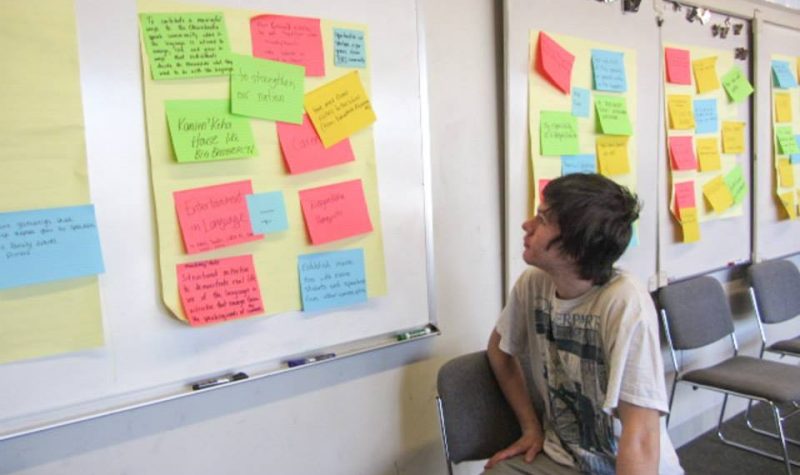The Onkwawenna Kentyohkwa Adult Immersion School is continuing its efforts to ensure that the Mohawk language carries on.
The school's goal is to make fluent mohawk speakers of its students who are enrolled in their programs. The school began its operation in 1999 and has continue to grow and help people learn and become speakers in the traditional Mohawk language 24 years later.
Jordan Brant, program director at Onkwawenna Kentyohkwa, said the course is completed over two years with roughly 2,000 in-language learning hours. He said the schools teaching methods differ from traditional language learning methods due to their utilization of the "root word" method, which allows students to learn the language quicker. The Mohawk language is considered to be a polysynthetic language, so over 90 per cent of the entire vocabulary is verbs.
Brant spoke on the responsibility he feels in educating students and preserving traditional Indigenous languages.
"I'm sure we're very well aware of why our languages are in the state that they're in. And, really, the time crunch is on to succeed. I would say that's our number one pressure," he said.
The time commitment is one of the biggest challenges Brant sees students dealing with in the program.
"The time on task required is something that I would say is something that most students aren't prepared for right away. We think we can become fluent often by taking a few night courses a couple nights a week, but its really stepping into this for two full years."
Currently, he said the youngest student enrolled with the program is 18, while the oldest is 63. Brant said that former graduates of the program (including himself) have gone on to use the knowledge they've learned from the program and became teachers, as well as started organizations like the Everlasting Tree School, which is deeply rooted in Haudenosaunee culture and language.
Brant spoke on the enjoyment of working with the students and working on the program as a whole.
"It's like a workout, you show up at the gym everyday and do some really really hard work. It takes a long time to see results. I would say that the best part of it is the surprises. Maybe you see an old student you haven't seen in a number years and they come up to you and they have a kid with them and their kid only wants to talk to you in Kanyen’kéha (Mohawk). you know I'd say that we're doing our job when I see that," he said.
Interested community members may apply for the program by calling Onkwawenna Kentyohkwa at (519) 445-1250 or by emailing onkwawenna@gmail.com. Applicants must pass an admission test to be eligible for admission. The application process usually begins in February and Brant said that usually the program accepts about 12 new students every year.
Listen to the full CJKS story below:


